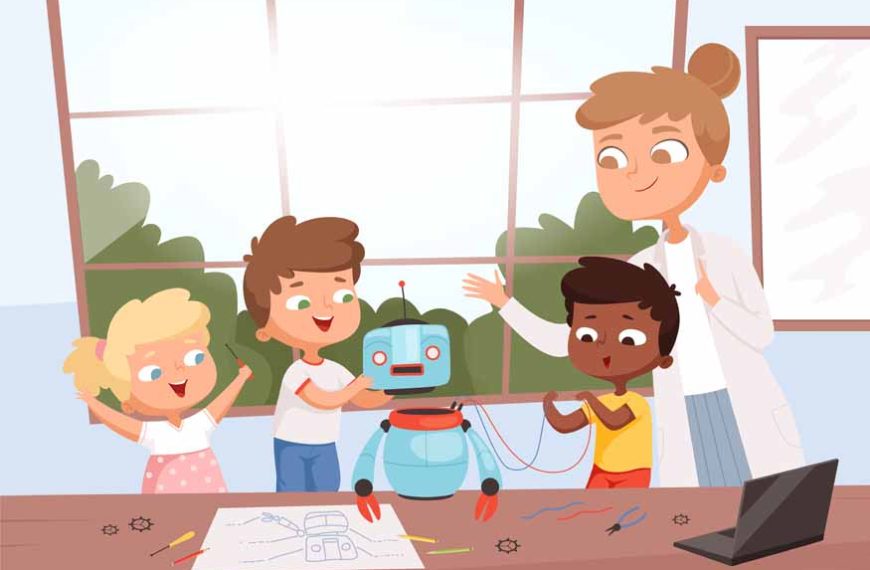Most children have often heard this from their parents, “If you perform well in this test, I’ll buy you that toy you’ve been wanting for a long time”. But, the same kind of zeal and attention may not be shown for sports or other activities. While it’s important to place importance on a child’s academic prowess, parents must also allow and further encourage their children to participate in co-curricular activities.
What are Co-Curricular Activities?
Co-curricular activities are those that fall outside the scope of everyday academic curriculum and requirements. Most schools serve dedicated time slots of children to pursue and excel in such activities. Students can participate in such activities by becoming a member of various clubs, partaking in sports functions, trying their hands at art and so forth.
What are Some Popular Types of Co-Curricular Activities?
- Sports
- Clubs
- Arts Activities
- Acts of Community Service
One of the best ways to engage your child in co-curricular activities is by enrolling him in some sports classes. Swimming, football, martial arts, basketball, or track are some popular choices to keep your child fit and active.
Based on your child’s interests, your child can join various clubs such as poetry club, debate club, chess club, quiz club, literary club, or drama club etc. Remember that all co-curricular activities need not involve sports or physical strength.
Help unleash your child’s inner Picasso by signing them up for an art class or let him shine on a dance stage as he learns how to bust into a movie or two.
Co-curricular activities go beyond the walls of the classrooms and into giving also. Your child may volunteer their time and skills in serving community-based projects or charity work.
What is the Importance of Co-Curricular Activities
Extracurricular activities can offer a host of advantages to children, such as:
- Social and emotional literacy
- Personal Growth
- Physical benefits
- Leadership Skills
- Improved Academic Focus
- A Sense of Belonging in the Community
- Readiness for Higher Education
Joining clubs can teach children how to mingle, make friends, and form connections outside of the classroom while a team activity can teach them how to work with others. Winning or losing in a sport can also teach him how to handle pride and also how to be sympathetic. It also serves as an outlet for creativity and many children often find that creating art, playing an instrument, or simply reading a book helps them relax and deal with an otherwise bothersome situation.
While scoring high marks in exams and being booksmart is considered a coveted skill, being engaged in different activities helps a child discover different facets of his own personality while achieving goals. It challenges and motivates them and leads them to a path of self-discovery and personal growth. For instance, a child may not like the game of chess and find it strategic. However, another child may like it for the very same reason and in fact, learn a thing or two about patience.
Being active in extracurricular activities not only keeps the brain sharp but also the body fit. Physical activities can also reduce stress and improve overall well-being. Children from the age of 6-15 are encouraged to spend at least an hour or two outside participating in a physical sport. Playing outdoors also gives them the nourishment they need with a healthy dose of vitamin D and it aids in improving their confidence and social skills with other children.
Many co-curricular activities involve playing different roles at different times like leading a team, delegating work, or playing a secondary but important role. If the child wishes to assert his dominance early, his teammates may not particularly like him. However, a leader thrives by pulling his team up and those are skills learned on the field. No matter which club a child is part of or in which team he is in, he must be held accountable for the role he plays. Being on time and setting an example for the rest will hold him in high stead among his teachers and peers. In turn, he learns the art of time management.
Taking part in activities outside the classroom can surprisingly also improve their academic prowess and keep them motivated in the classroom. A well-rounded education focuses not only on academics but also co-curricular for all-round development. Students can apply their knowledge and skills acquired from outside-the-classroom activities into their everyday coursework to understand concepts better.
It is admirable for parents to teach children selflessness and giving from an early age. Socially responsible children grow up to become stellar members of the society. Partaking in community service acts like donating to a charity, spending time in an elderly home, signing up for a beach clean-up drive, or teaching valuable life skills to orphans teaches children a sense of social responsibility and encourages them to give back to the communities they belong to.
Co-curricular activities offer a diverse range of experiences and broadens horizons for students. Some children know early on and have a fair idea of what they would like to pursue in college to chase a particular career. Parents should keep in mind that college admissions officers and teams often prefer well-rounded individuals and having a solid repertoire of skills can help create a lasting and positive impression. It’s never too early to start guiding your children in the path they wish to pursue.
At EuroKids, we ensure a holistic all-rounded education system for every single child. Our teaching practices go beyond the four walls of the classroom and we ensure that every student realizes his full potential. Not only do we stress on academic excellence, we also encourage our students to partake in co-curricular activities that may help them hone their craft and aid them in improving their already vibrant personalities.















